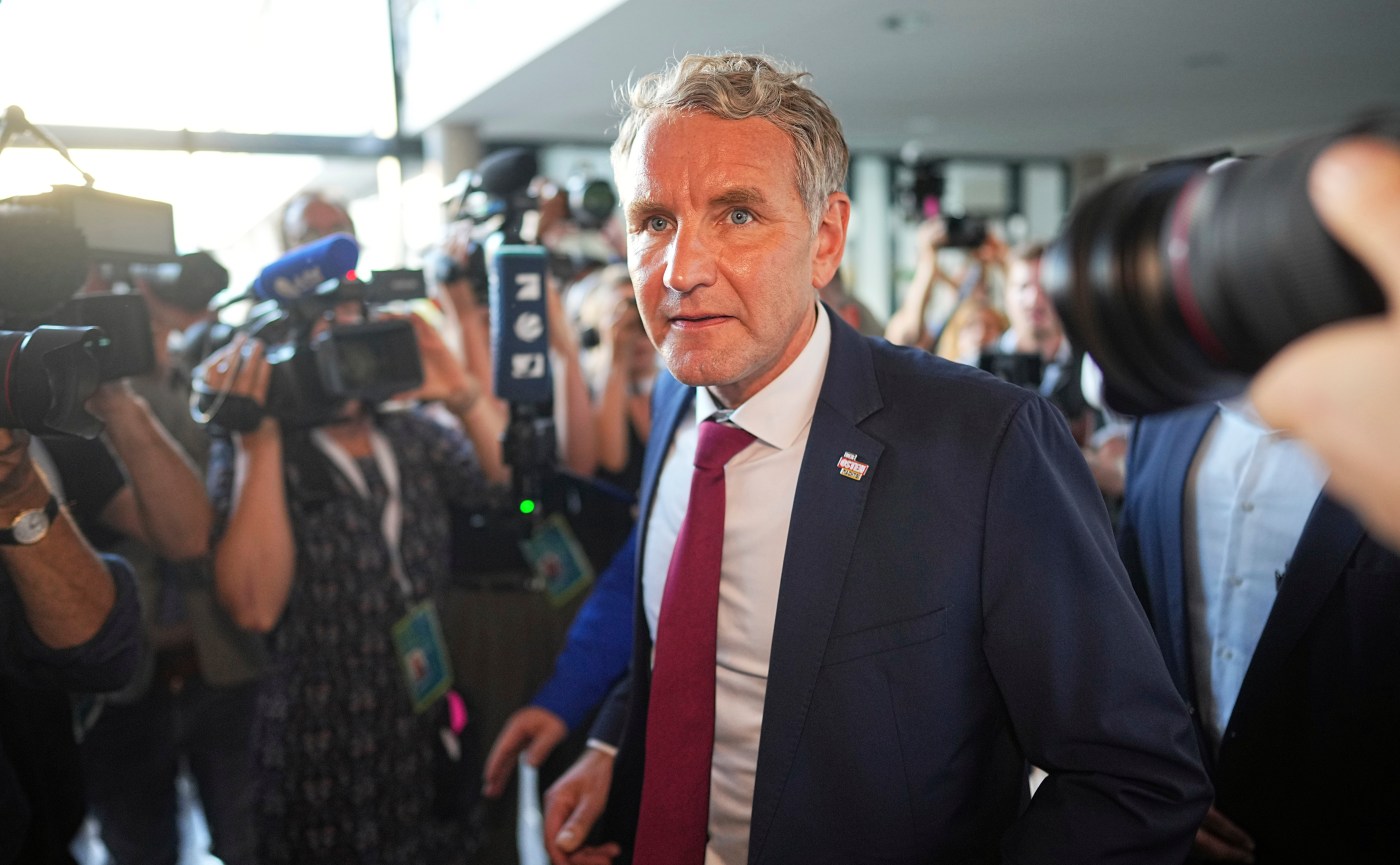
Ticker: German far-right party wins its first state election since World War II
A far-right party won a state election for the first time in post-World War II Germany in the country’s east on Sunday, and was set to finish at least a very close second to mainstream conservatives in a second vote.
A new party founded by a prominent leftist also made an immediate impact, while the parties in Chancellor Olaf Scholz’s unpopular national government obtained extremely weak results.
Projections for ARD and ZDF public television based on exit polls and partial counting showed the far-right Alternative for Germany, or AfD, winning 32-33% of the vote in Thuringia — well ahead of the center-right Christian Democratic Union, the main national opposition party, with about 24%.
In neighboring Saxony, projections put support for the CDU, which has led the state since German reunification in 1990, at 31.5-31.8% and AfD on 30.8-31.4%.
“An openly right-wing extremist party has become the strongest force in a state parliament for the first time since 1949, and that causes many people very deep concern and fear,” said Omid Nouripour, a leader of the Greens, one of the national governing parties.
Other parties say they won’t put AfD in power by joining it in a coalition. Even so, its strength is likely to make it extremely difficult to form new state governments, forcing other parties into exotic new coalitions. The new Sahra Wagenknecht Alliance, or BSW, took up to 16% of the vote in Thuringia and 12% in Saxony, adding another level of complication.
“This is a historic success for us,” Alice Weidel, a national co-leader of AfD, told ARD. She described the result as a “requiem” for Scholz’s coalition.
Deep discontent with a national government notorious for infighting, anti-immigration sentiment and skepticism toward German military aid for Ukraine are among the factors that have contributed to support for populist parties in the region, which is less prosperous than western Germany.

